Workshop: Discover Columinity
An ideal opportunity to learn how Columinity triggers organizational change with data-informed decisions based on scientific insights.
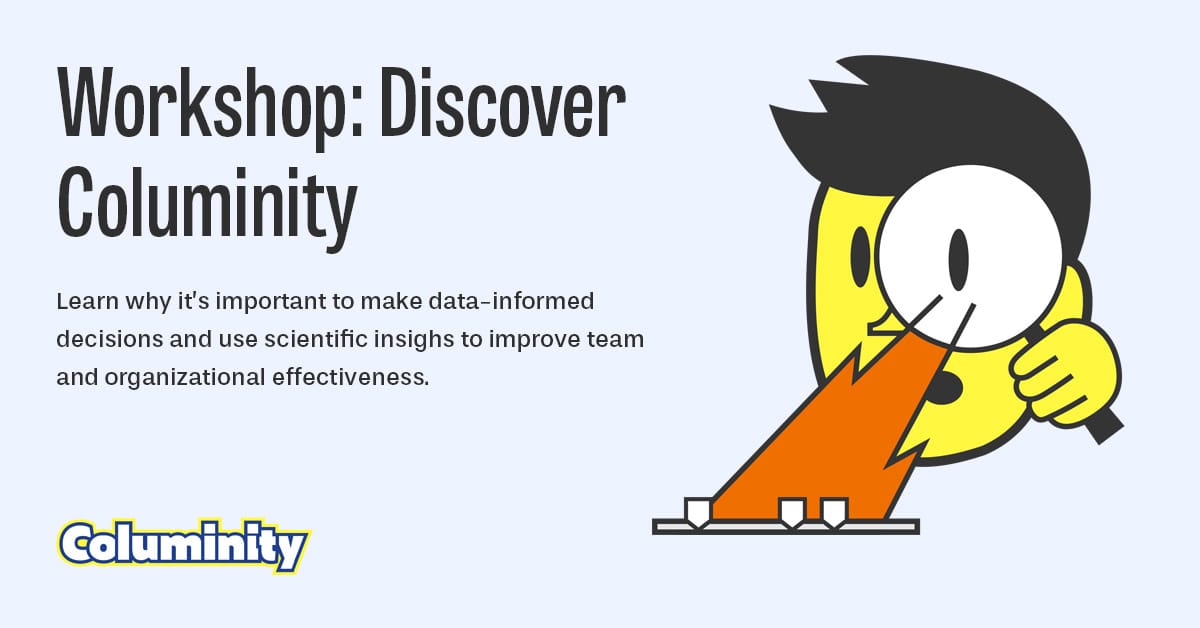
Columinity improves team and organizational effectiveness through data-informed decisions and scientific insights. You can diagnose one or many teams, receive evidence-based feedback, and resolve broader organizational issues. It helps to make decisions based on quantitative and qualitative data and insights from research, instead of only on gut feeling, opinions, or intuition.
In the past year, we have hosted public meetups in Copenhagen 🇩🇰, Zurich 🇨🇭, Amsterdam 🇳🇱, Utrecht 🇳🇱, London 🇬🇧, and Berlin 🇩🇪 and internal workshops at organizations. We call these 'Columinity Discovery Workshops,' which range from a 3-hour session to a full-day workshop. Regardless of the duration, it's a fun, highly interactive, and dynamic workshop that sparks important reflections and insights.
Overall, our purpose with the workshop is to have everyone...
🎯 Understand WHY it is essential to use data to identify and remove impediments to team and organizational effectiveness.
🎯 Experience WHAT this looks like in practice with Columinity and how it uses scientific insights to support change in teams and organizations.
🎯 Learn HOW teams and organizations can use Columinity to perform Action Research - a collaborative, data-informed process to identify challenges, take action, and reflect on results to trigger continuous improvement and learning.
This format is similar to the Columinity kickoff workshop, with a few key differences. We spend more time exploring the 'why' behind our approach and don’t (yet) use real team data to apply Action Research. The discovery workshops also attract a broader mix of participants—anyone curious about driving organizational change through data-informed decisions and scientific insights is welcome.
In this blog post, I’ll outline the 3-hour Columinity Discovery Workshop. The program isn’t fixed, but it gives a good sense of what to expect: an interactive session filled with meaningful conversations.
Interested in running this workshop as a public or internal session within your organization? Get in touch to explore the options: info@columinity.com.
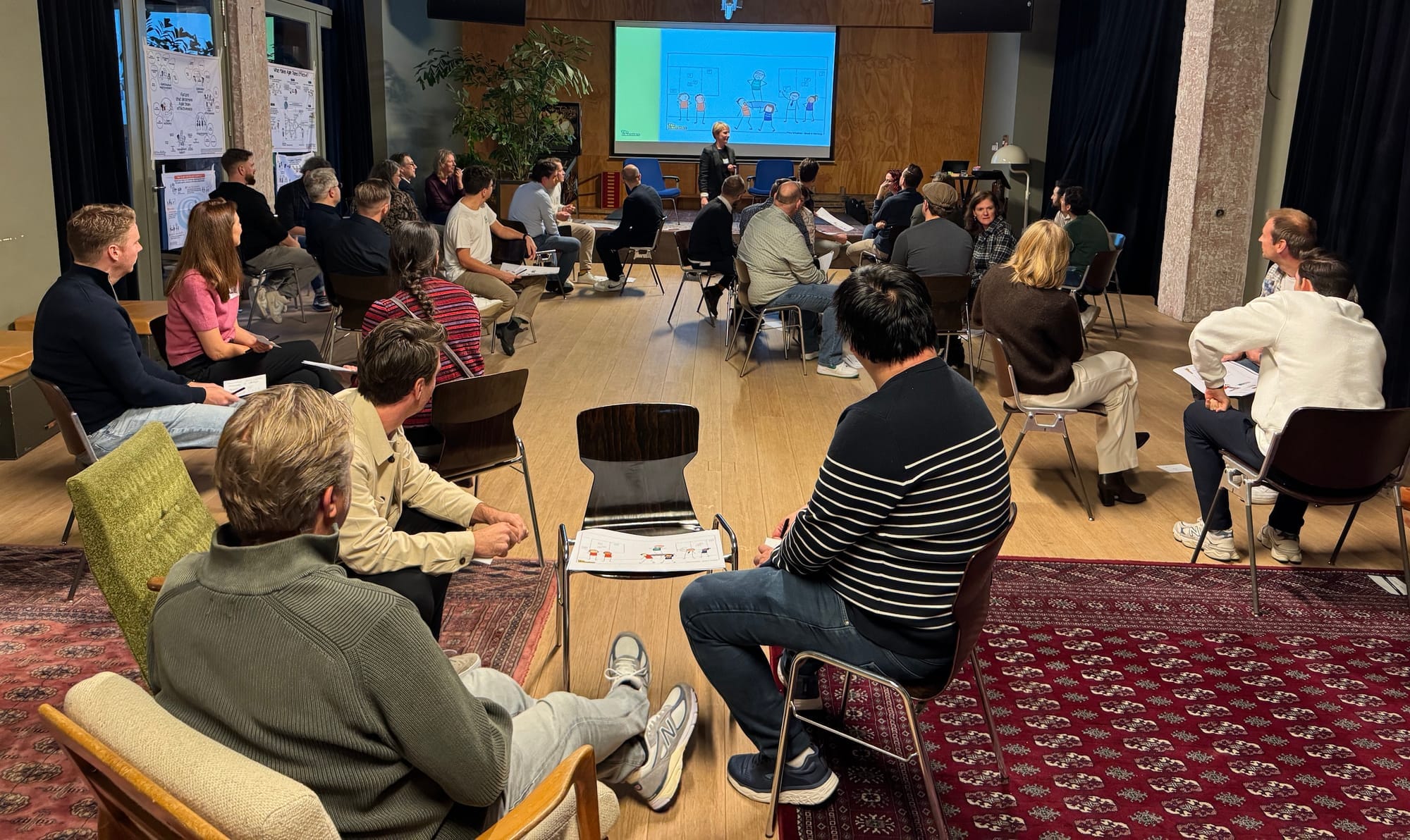
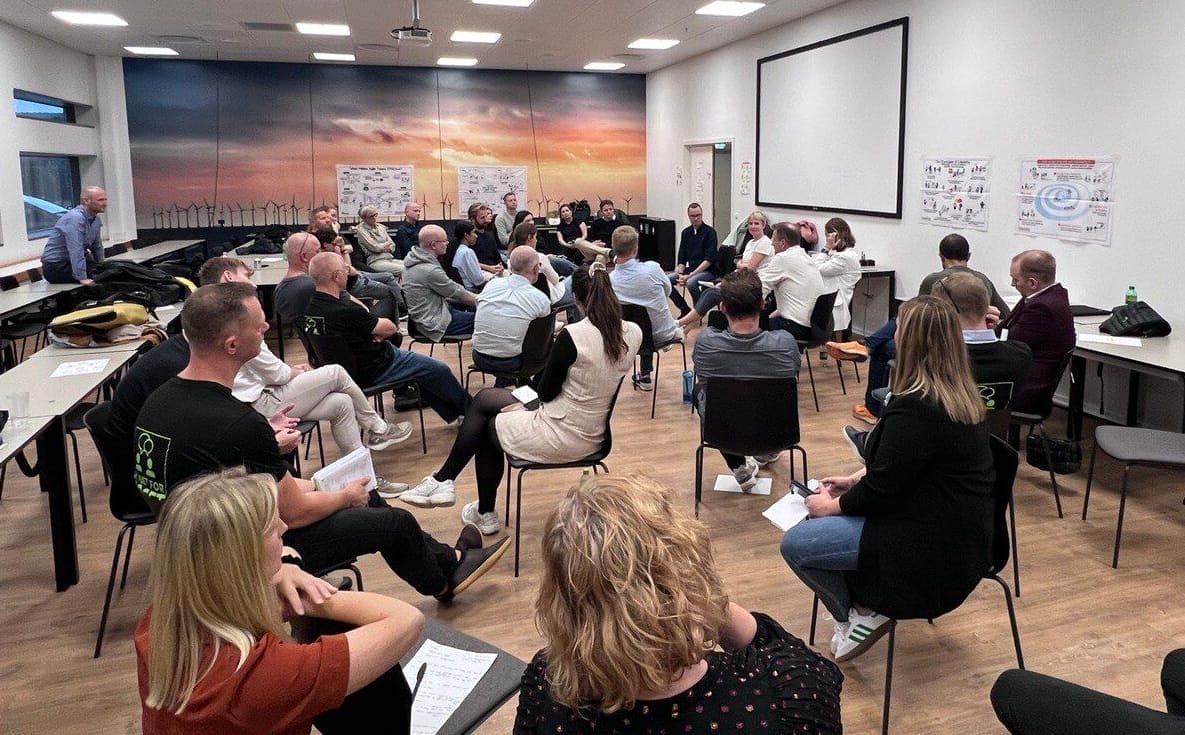
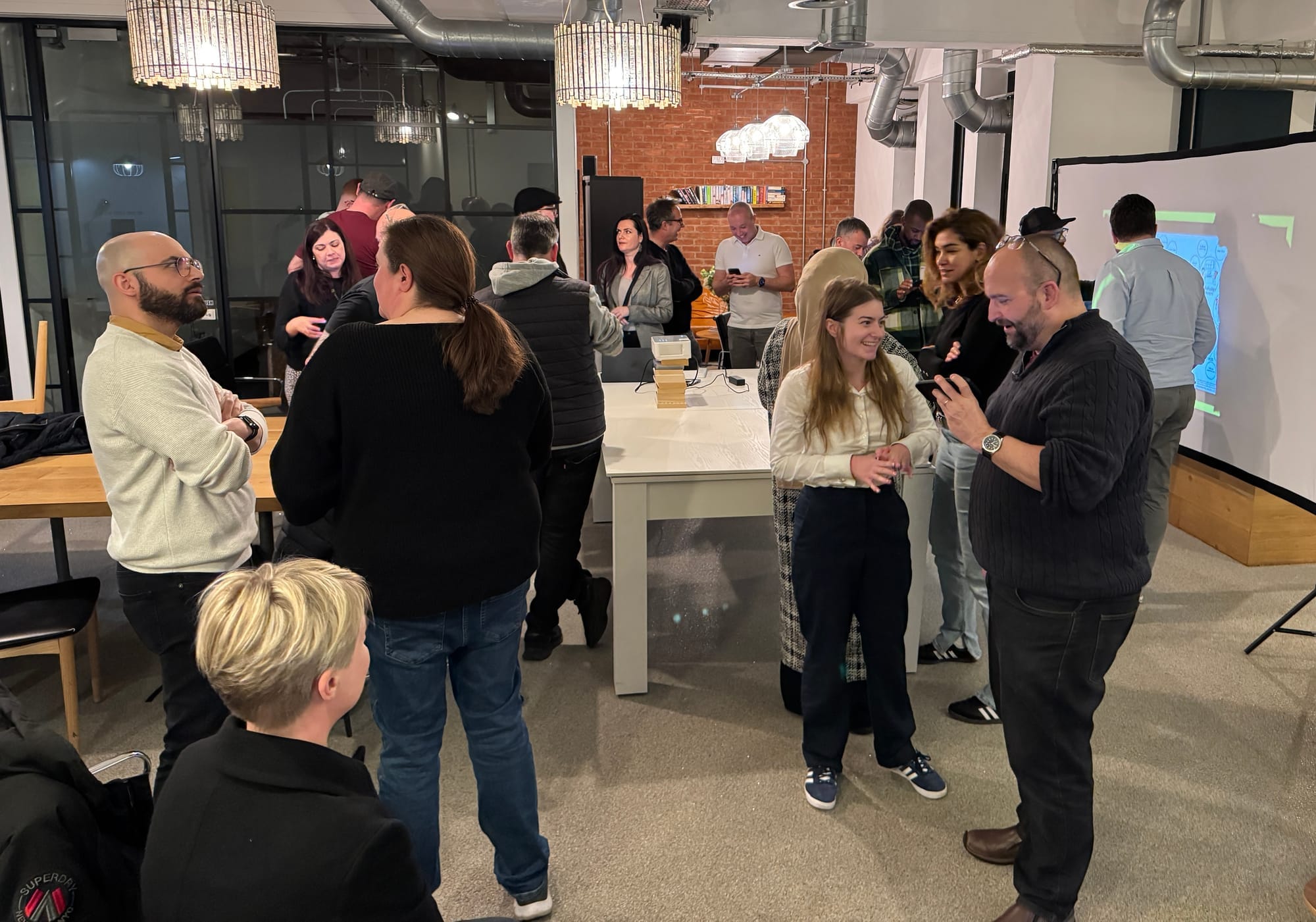
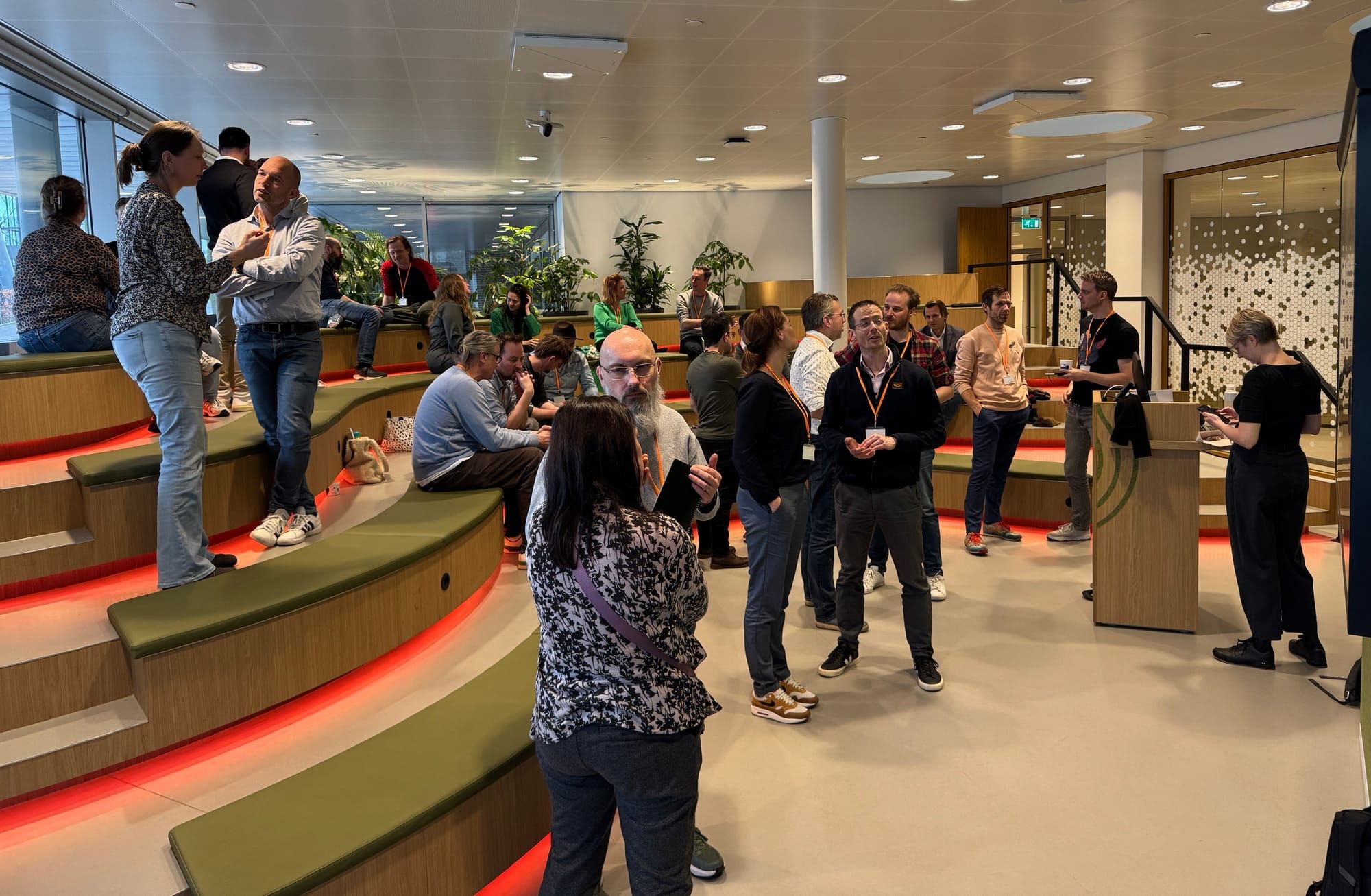
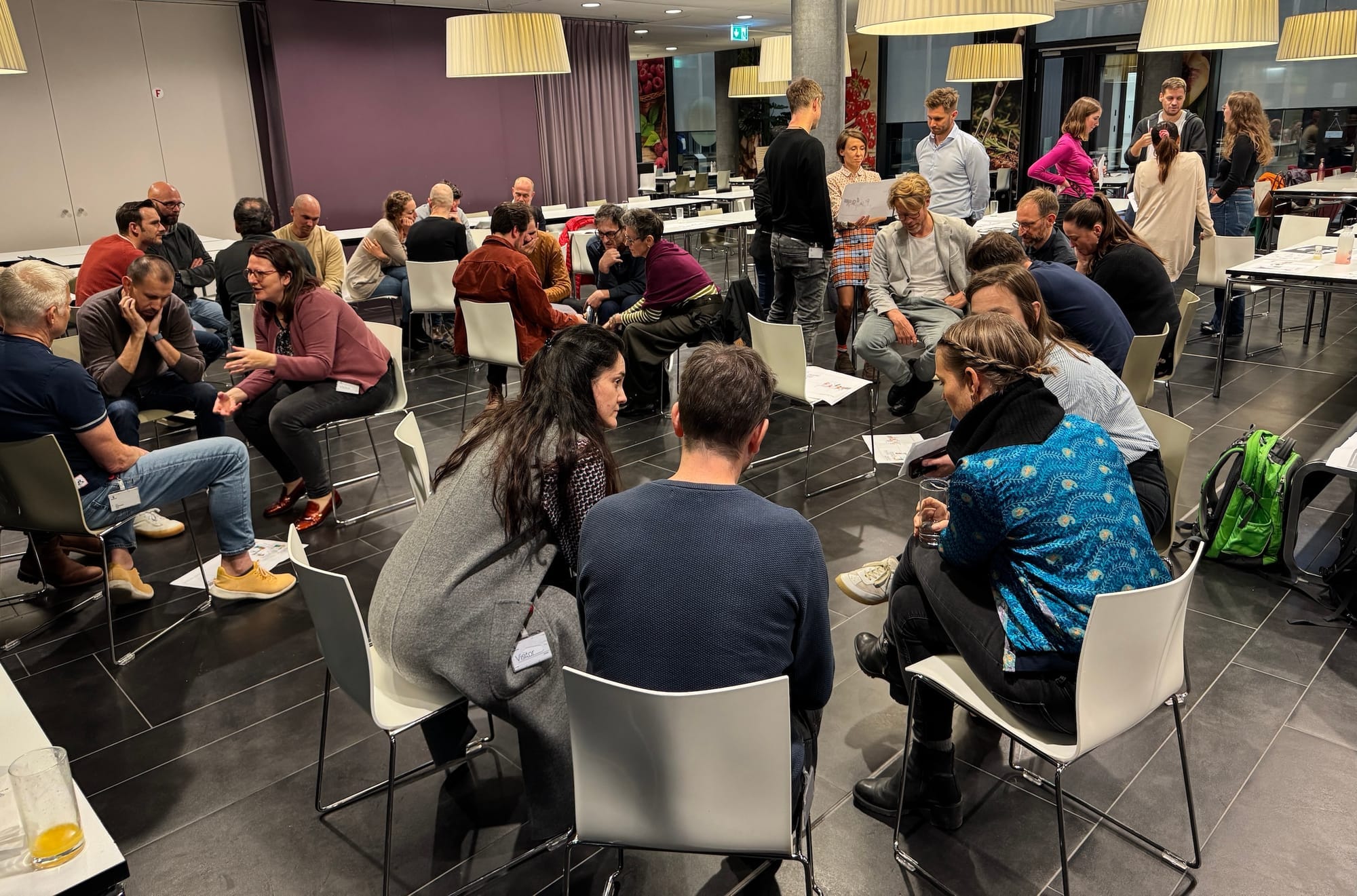
Impressions of previous public and internal workshops.
Part 1 - Why use scientific insights and make data-informed decisions?
Timeslot: 9:00 - 9:30
The Agile industry is at a turning point. Companies are letting go of coaches—not because they’ve failed, but because their value and impact aren’t clear. Agile itself is being questioned.
"Given all our investments, why aren't we seeing the benefits of Agile?"
We hear this a lot, and our first response is usually:
“What do you consider the benefits of Agile?”
The answers often include delivering more value—sooner and with higher quality—to stakeholders, customers, or users. That depends on one thing: effective teams. Teams are the ones who build, deliver, and maintain.
But how do you know if a team is truly effective? How do you know stakeholders are satisfied? How do you know management is enabling teams—or holding them back? Zooming out: how do you know if your organization is effective?
Put differently:
"How do you know you're gaining the benefits of Agile?"
This first part of the workshop explores why these questions are more important than ever, why not having clear answers creates risk, and how coaches, managers, and leaders are searching for better ways to respond.
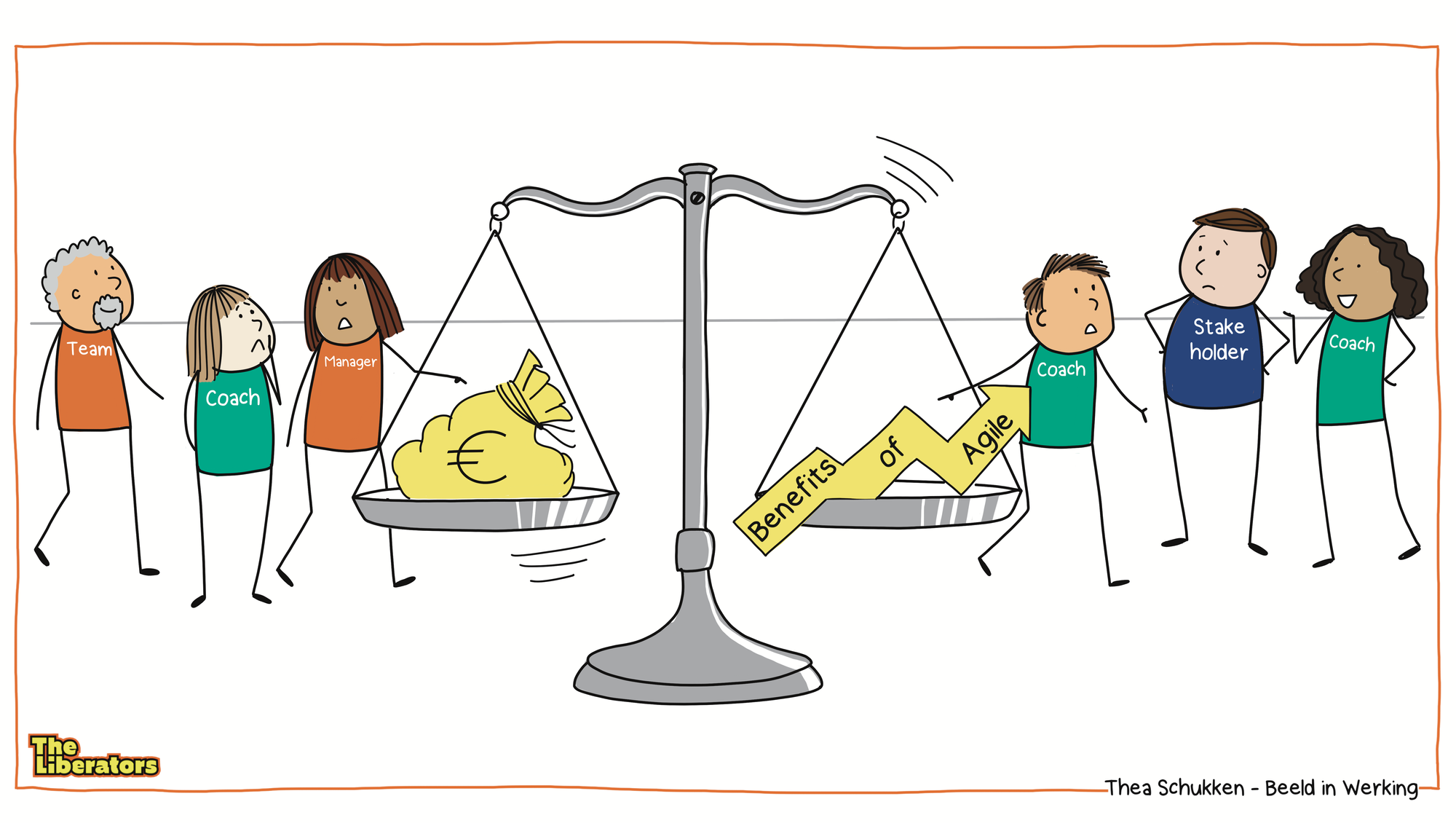
Part 2 - Our scientific models explained
Timeslot: 9:30 - 10:00
How can you make teams more effective? While opinions are easy to find, evidence-based recommendations are more scarce. Unfortunately, scientific research in this area is limited. So, we performed this research with academics, statisticians, and psychologists. For seven years, we conducted case studies and gathered data from over 5.000 Agile teams to develop a scientific model for Agile Team Effectiveness.
We've also created the Teamwork Quality model. This science-based model assesses your team on cohesion, psychological safety, goal commitment, collaboration, and available support structures for teamwork. We recently launched the Agile Mindset model. This evidence-based model assesses the attitudes typical to an Agile mindset and investigates to what extent a foundation is present to create such a mindset. Both models are still in beta, which means they evolve based on what we learn from teams.
In this part of the workshop, we dive into the three models with interactive exercises and discussions, giving participants a hands-on sense of how and when to apply them.
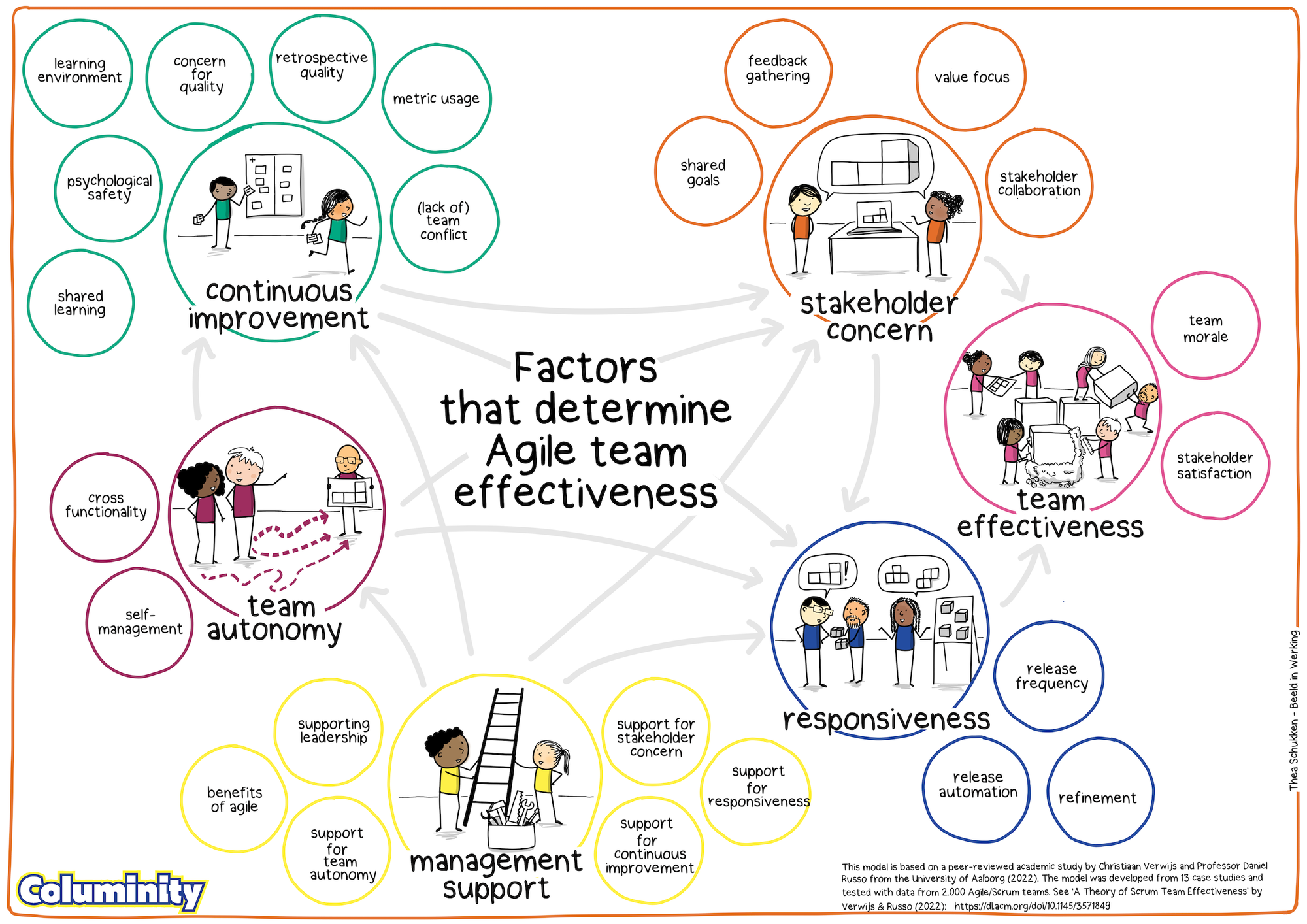
Part 3 - Lessons learned from our customers
Timeslot: 10:00 - 10:45
Next, we share our experiences and lessons from working with our customers. We explain how Columinity is a systemic approach to addressing patterns and organizational challenges. Using a shared coaching focus—made visible with the aggregated team results—an organizational impact is made, and the delivered (coaching) value is shown clearly. We also touch on the importance of management and leadership support, how it strongly influences team effectiveness, and how Columinity clarifies where support is needed most.
Overall, we explain how Columinity is a tool to help teams, supporters (managers, leaders, coaches), and their stakeholders have meaningful conversations about what to improve. It should catalyze systemic change, triggering reflection and action and creating a climate of continuous improvement.
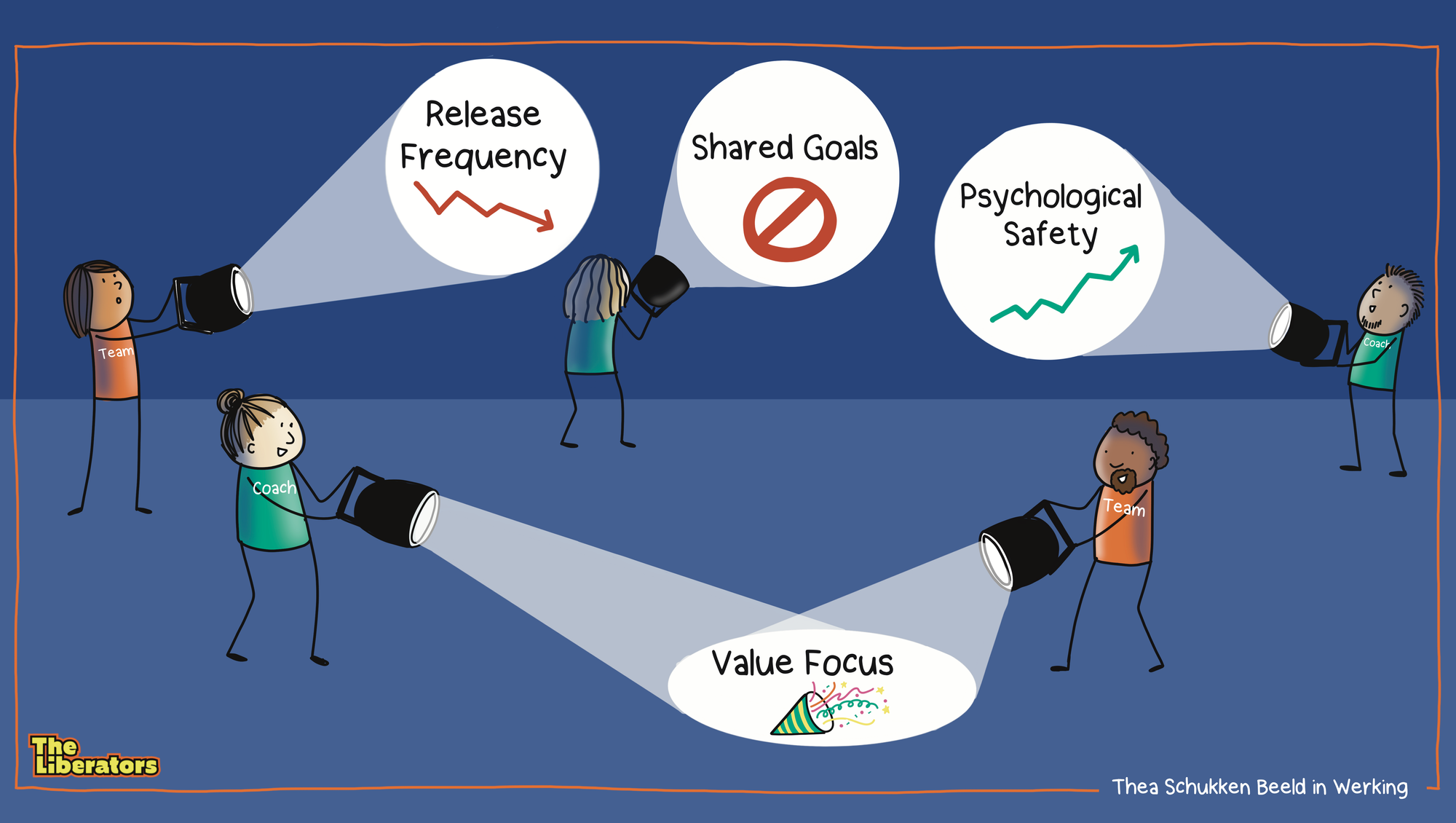
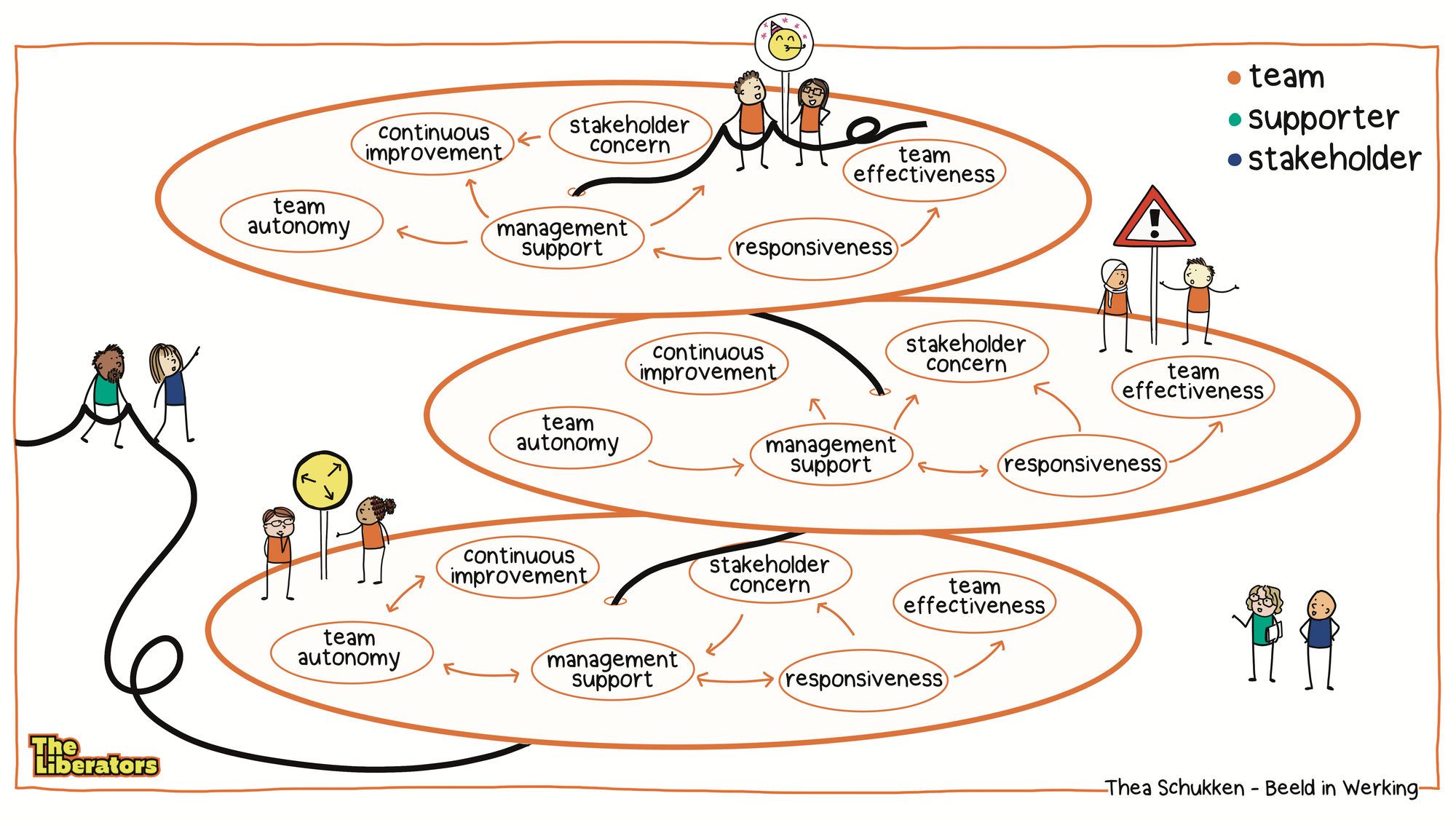
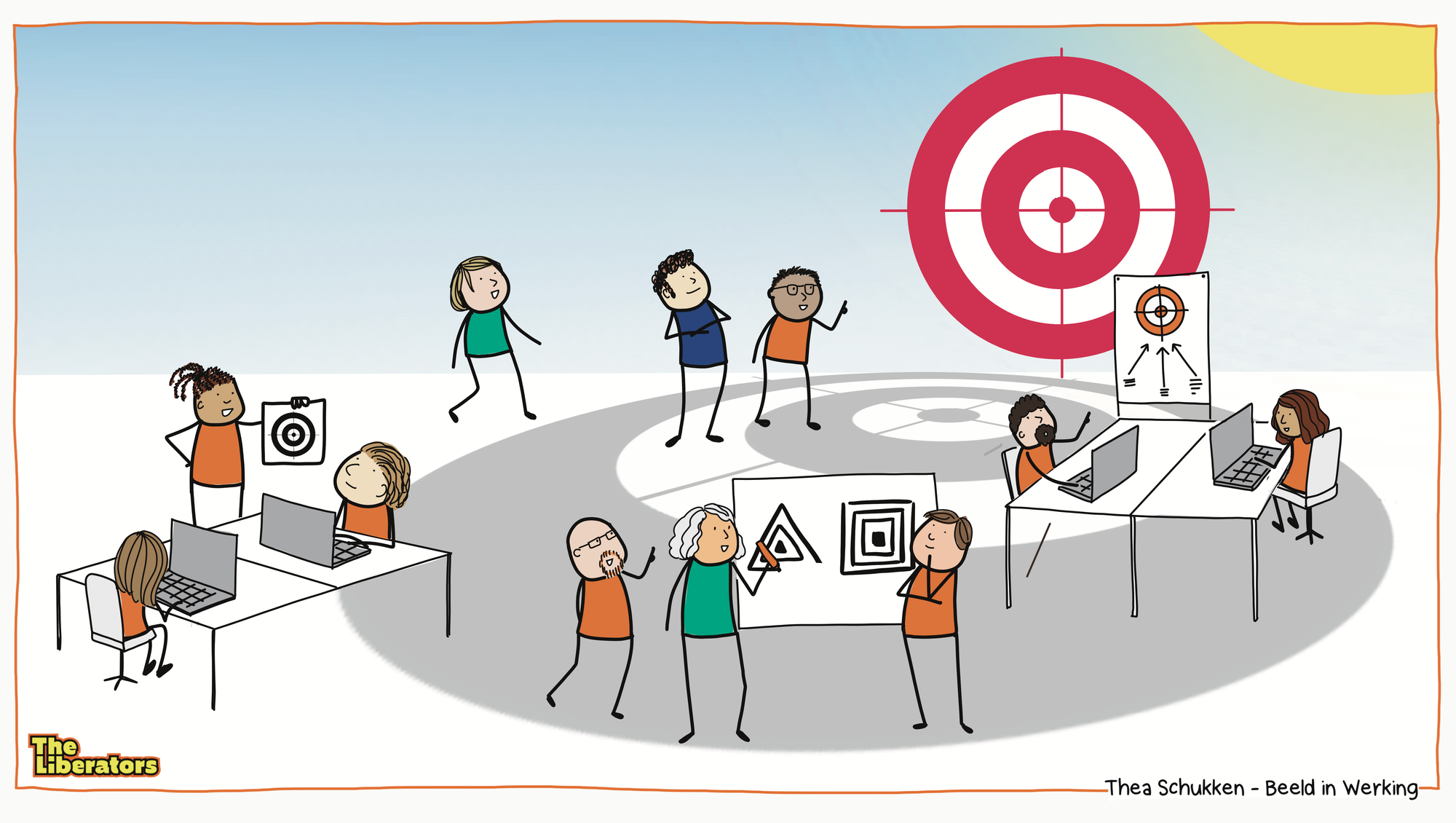
Part 4 - Action Research with Columinity
Timeslot: 10:45 - 11:30
In this part of the workshop, we explain how Columinity is based on the philosophy of Action Research—a collaborative, data-informed process for identifying challenges, taking action, and reflecting on results to trigger continuous improvement and learning.
In shorter (3-hour) sessions, we briefly discuss the concept. In full-day workshops, we thoroughly walk through the Action Research cycle, spotting key observations, identifying patterns, and exploring underlying dynamics. Since there is no real data yet, we work with participants’ experiences, observations, and intuition. That’s fine—our primary goal is to help everyone understand the process.
This part of the workshop also shows how Action Research with Columinity can spark organizational change and help create a climate of continuous improvement.
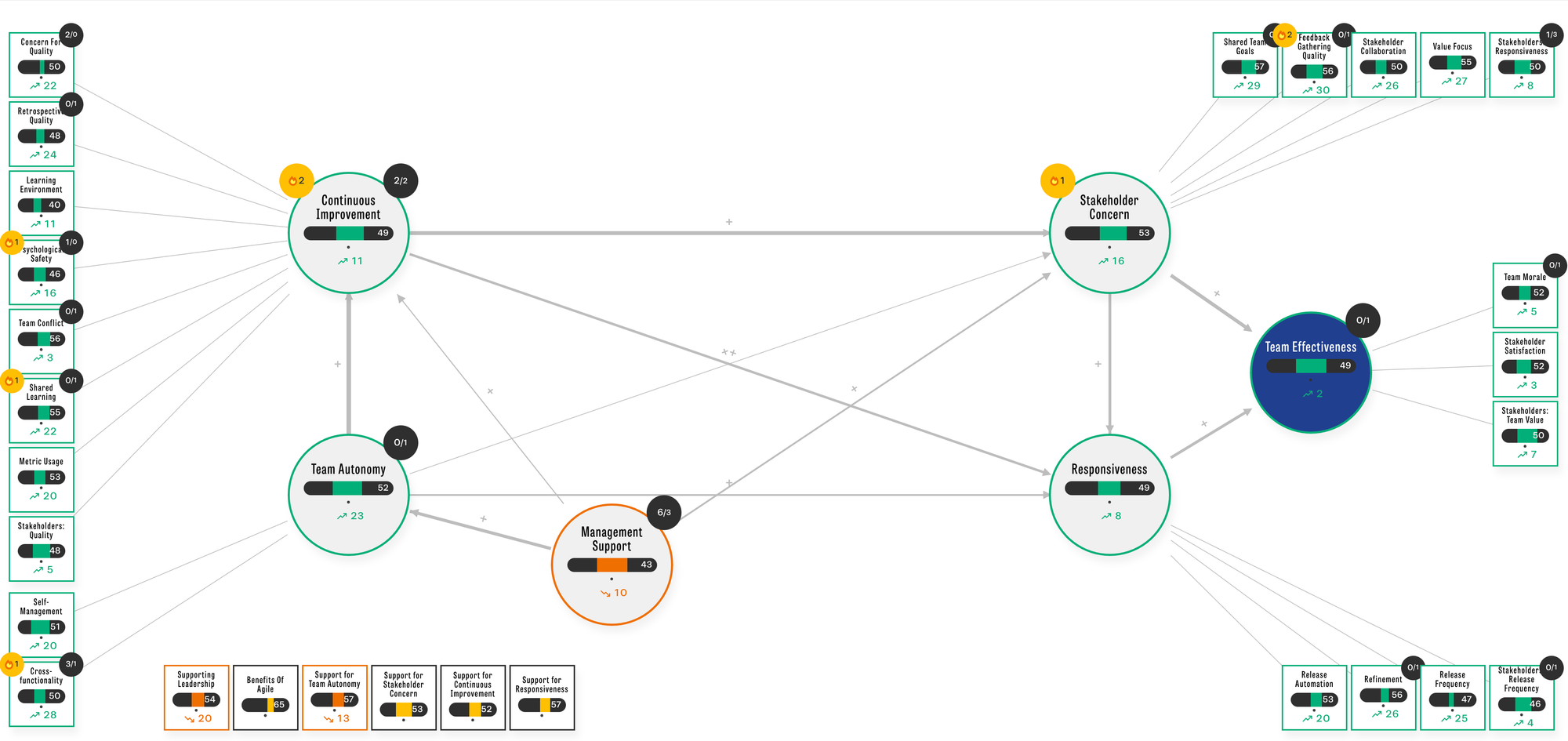
Part 5 - How to move forward
Timeslot: 11:30 - 12:00
Optionally, we take time to demonstrate the product and its key features. Otherwise, there's a risk of things staying too abstract and missing practical insights. To address this, we can provide a guided tour, walking participants through key functionalities step-by-step, which helps illustrate how the product could directly benefit the teams and organization.
In the one-day workshop, we use a variety of Liberating Structures to help participants reflect on what they've learned and explore ideas for applying Columinity in their context. For example, we often use Future~Present, Shift & Share, and Conversation Café to spark conversations.
We also share practical recommendations and things to watch out for, like keeping the proper coaching distance, avoiding the trap of becoming an “Agile Preacher,” and recognizing how coaching hierarchies can hinder effective problem-solving.
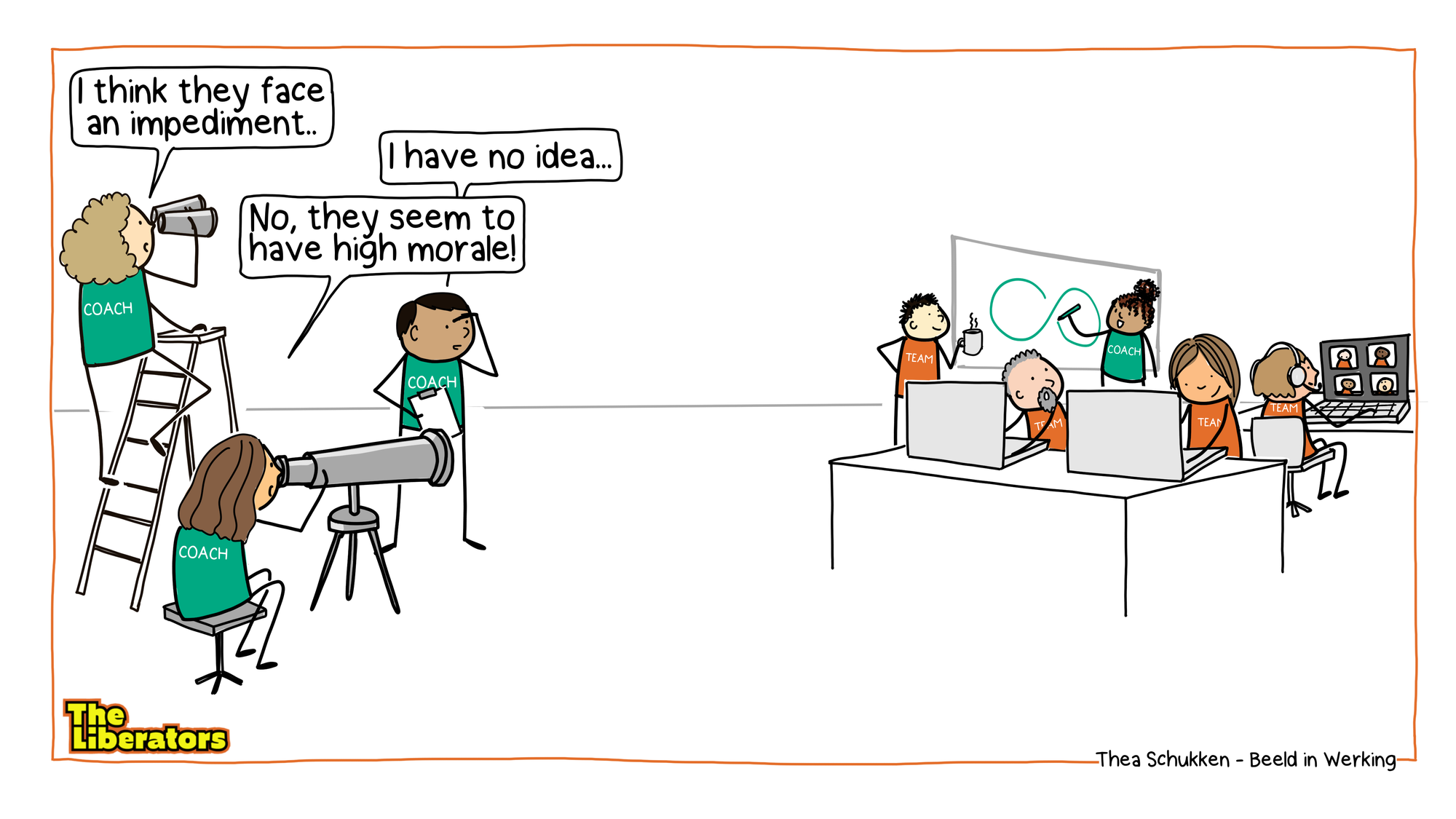
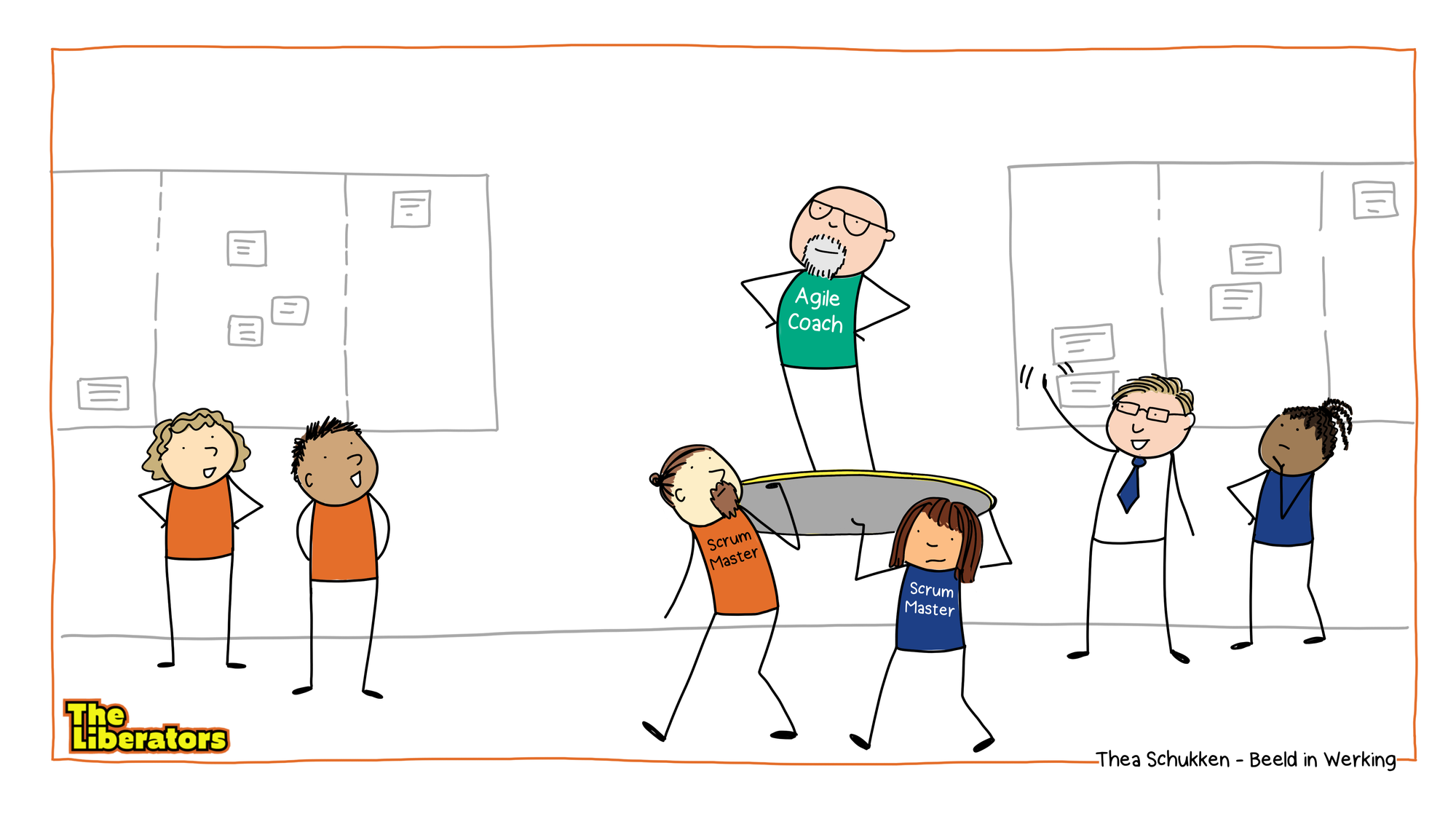
Closing
The "Columinity Discovery Workshop" is an ideal opportunity to learn why making data-informed decisions and using scientific insights to improve team and organizational effectiveness is vital. You'll familiarize yourself with the underlying scientific research and be introduced to the concept of Action Research—a collaborative, data-informed process for identifying challenges, taking action, and reflecting on results to trigger continuous improvement and learning.
The duration—whether three hours or a full day—shapes how deeply we explore each topic. Anyone interested is welcome to join. It’s sure to spark essential conversations and valuable insights.
Interested in running this workshop as a public or internal session within your organization? Get in touch to explore the options: info@columinity.com.


